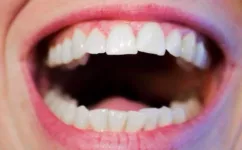Whenever you replace a tooth or place a dental implant, you need to take care for it like you would do for your natural teeth – or even better. When you are eating, drinking or brushing your teeth and you feel something strange in your mouth, it could be your dental implant falling out.
If that happens, what should you do? The first thing that might come to your mind might be to call the orthodontist.
And that’s right. But first, let’s analyse how you can prevent that awkward situation and what to expect if it eventually does.
How do you prevent your dental implants from falling out?
To quickly detect any possible problem with your dental implants, you need to always care for your teeth regularly. If you visit the dentist once in a while -monthly or bi-monthly, he can quickly notice any uneven wears or open margins before the implants start to fall out or before you even notice anything. The dentist will also advise you on proper oral hygiene to help prevent tooth decay or control bacterial plaque.
When these plaques start forming around the dental implant, it will be difficult to easily restore the area after damage has been done. If you do not want to worry about your dental implants falling out, you need to take care of your mouth properly.
Normally, dental implants feel like your regular tooth, but that doesn’t mean they will last forever. Therefore, as you visit the dentist regularly, he will easily determine the right time to change the implant if there’s a need to or what you should do when specific oral issues arise.
That notwithstanding, there are times when a dental implant falls off on its own without any signs. You might not even notice till you start feeling some sort of discomfort and pain
The American Dental Association states that a long list of factors can actually influence the falling ou t of a dental implant. From clenching or grinding — which leads to wearing off of the tooth and bacteria causing decay after penetrating the margins of the dental implants –, to you just needing a replacement or dental care, you need to ensure that the root canal isn’t affected and your entire dentition doesn’t go bad.
What should you do when your dental implant eventually falls out?
When your dental implants eventually fall out, there’s no need to worry about what to do because a well trained orthodontist is always ready to fix the emergency. Normally, once you call your dental center, they’ll assign a time for you to come the same day.
When you get to the dental clinic, a dentist or their assistant will take a look at your medical history and ask you some questions about the symptoms you experienced and other concerns you might have. Afterwards, an X-ray of your teeth will be taken to help the dentist determine the right treatment or action to take. If it involves a restoration or replacement that can be done there and then, you will be told. If not, you might be referred to another dental specialist.
“If your tooth needs restoration for example, the dentist will figure out what type of restoration it needs, according to the particular location,” says Dr. Neil Oza of Advanced Dental Concept in Baton Rouge, Louisiana.

He explains that the patient can choose between a colored tooth (glass ionomer) or an amalgam filling (silver) when it’s the premolars or molars that is affected.
“Since these parts of the teeth chew more food and even harder food substances, the amalgam composite will be a better material – due to the fact that it will last longer and it’s really strong,” he concludes.
If the entire implant doesn’t fall off, then adjustments can be made to fit the cap, crown or any part that is majorly affected. Some of the replacements can be temporary or permanent, depending on what’s available at your dental clinic.
“The deep cavity to nerve of your tooth is likely to be revealed when your dental implants begin to fall out. The dentist can simply place a crown after the root canal, but if the tooth is badly fractured then it might have to be taken off. When taken off, you will have to decide if you want a replacement or you want removable or fixed bridge,” another dental expert, Dr. Cecilia Lam-Phuong Luong explains.
On a final note, remember that a dental implant falling out is not the end of the world. All you need to do is consult your orthodontist or simply walk into the nearest dental clinic in your vicinity and to have it examined before any decision is made. If you don’t seek dental care immediately then you should be ready to handle the pain that comes with losing a tooth.








